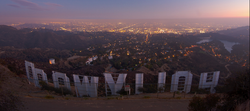 You won't be happy anywhere.
I used to think this was completely untrue. I believed, in a way, that people could will themselves to be happy--but mostly what I meant was that I thought I could will myself to be happy. In high school I envisioned myself as a teenager stuck in suburbia, suffocated by the atmosphere of simple teenage minds and their simple teenage opinions and, most of all, their simple lack of culture. Living my entire life 20 minutes and a train ride away from San Francisco left me with the idea that there was something just out of my reach; an access to culture that was just barely out of my grasp. I was on the other side of society's counter-culture: I had the ability to peek in but not able to break through. I blamed this on my suburban locale: stifling, limited, and simple. To me, this was the greatest sin of them all. In my mind, I was determined to be a starving artist, sacrificing security and wealth for a desire to stay steadfast in my creativity. But so far I've felt that my entire life has been a search for the creative aspect that should be driving my life.
As an only child, I spent most of my time alone. Part of this loneliness was comforted by the static image of the screen, more specifically, the television screen. On the weekends that I was able to spend with my father--the earlier years of my childhood--much of our time was spent going to the movie theaters. Since my father was not what one would call strict or restrictive, I was privy to movies that most would call inappropriate for a pre-adolescent. This translated to a somewhat early exposure of movies that, perhaps, should have been introduced later in life. When I hit teenage-hood I yearned for more from my onscreen experiences. I required more from the movies and television shows that raised me: like my growing self, I required my movies and TV shows to grow with me, and to teach me.
When Netflix first hit the scene I was about 14 years old. I had just watched Zach Braff's Garden State and believed myself to have hit the highest echelon of filmmaking (but mostly my teenaged self was just impressed by the music video-like quality of the movie), so I, naturally, begged my mother to sign us up. This was during their 1-DVD-at-a-time plan when Instant Watch was non-existant. Netflix became my saving grace in high school: my one true friend, my rock. On the days I came home from school to receive a new movie in the mail, I would set aside a portion of my afternoon to lounge on the couch and enjoy--truly enjoy--the, admittedly, overrated movies which I thought to be my whole world. In those days, I took Netflix's Recommended section as the final word. There I welcomed myself to movies like Donnie Darko, Amelie, American Beauty, Pulp Fiction; movies that, although weren't cinematic masterpieces, were films that I probably wouldn't have gotten to had I never contracted myself to Netflix's services. These movies became the archive that I would draw on and allow to become my driving force. They became the movies that made me love films and filmmaking, and want to pursue it as a career.
When I began thinking about my future and where to apply for college, I narrowed my focus on two choices: Music Therapy (with an emphasis as a concert pianist), or, my **dream job**, Film Criticism. I had gone to the University of the Pacific for an audition and walked away with a hefty scholarship--the professor, I'm assuming, having been somewhat satisfied with my performance. I wasn't sure if I would accept or not. Later that month, as the deadline for college applications reared its ugly head, I recalled a novel that I had stumbled upon at the library, a novel titled "Escape from Film School". In the book, the protagonist is a male who finds himself a student at the University of Southern California's film school. I never finished the book--it wasn't a very good read--but it did make me aware of the possibility of film school. Still, I had never taken a film, photography, or film criticism class in my life and so the prospect seemed far out of my reach. But as November rolled by, I realized that it wouldn't hurt to at least take a look at the requirements necessary to apply to USC's film school. When I saw that the application requirements were a few writing pieces, some which I had in my archive and some which I would still need to write, I knew that I had to take that leap. I opened a new document and began writing.
I remember it was something about James Dean. And then another piece about Travis Bickle. I had compared him to Holden Caulfield--I know, not a very creative or original idea, a pretty teenage one at that, but there's a reason why they make you read Catcher in the Rye in high school. I've always wondered which admissions officer accepted me and why. My application didn't scream film expert and my classes didn't appear to show an interest in film (though, it was largely because my small farm-town high school didn't offer any). I'll always believe that the admissions officer that day took pity on me. My writing showed a passion for movie-watching, but talent? I still don't know if I have an eye for anything, really. My GPA wasn't exceptional, either. The two other students from my graduating class who ended up going to USC were phenomenally smart. Like, Calculus II and Introductory Physics type smart. The last math course I took in high school was Statistics. The last science class? Biotechnology. Joke courses that a student with no interest or patience for STEM subjects will take in an effort to appease parents, colleges, and high school graduation requirements. I think of myself as a hard-worker, but deserving of a film school as highly-regarded as USC? I still wonder about that sometimes. When I applied to film school I didn't think I'd end up there. I really didn't think I'd end up living within a mile from where James Dean, the subject I wrote about in my application essay, shot the stabbing scene in Rebel Without a Cause. It's terrible to think that I'm ungrateful for my fortune, especially in a school that both grants kids their dreams and tramples on them just as easily, but it's hard to say if I'm happy here. I'm truly lucky to have experienced what's been offered at the school, but what I've come across has also diminished my ideals of the school's credibility. There are countless individuals I find almost undeserving of their spot in the school. This seems almost hypocritical of myself to say, since my own seat in the school was given to me when I exhibited little to no experience in film writing. However, the vapidity of many students, as long as their seeming lack of insight and involvement has given me a newfound lack of hope in my peers, and as a result, my school. Last September I took a trip to New York to celebrate my 21st birthday. Visiting New York had been a lifelong dream of mine (living there is still on my list). To say it was not a disappointment is an understatement. I felt almost at home there, even though I was ~3000 miles away from the state I lived my entire life in. It's an incredible cliche to say that I felt like a belong in New York--anyone will feel like they belong in New York, but for me, I never wanted to leave. To this day, I wonder if maybe I should have followed through on my acceptance to NYU, rather than pursue a film degree at USC. While I hadn't been guaranteed a spot in the film program at NYU, it was an opportunity that would have allowed me a chance to live 4 years in a place I had always dreamed of. It would have been incredibly hard work, foreign, and likely full of heartbreak and humbling experiences, but I'll never know. The same could be said for the opposite, however, and I wonder if it would have been true. I still pride myself when the annual lists of top film schools in the nation are revealed and find USC at the top. Still, there's just something about sitting in the subway, riding across the Brooklyn Bridge that just feels natural and freeing. It's at least a step up from the stifling nature of bumper-to-bumper traffic on the 405. That alone takes me back to when I was 14 and stuck in suburbia, looking out of a tiny window, imagining the limitlessness of my future.
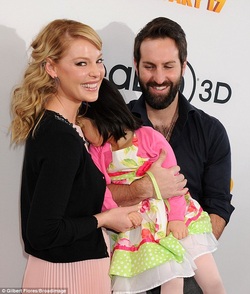 Sometimes, living in Hollywood has its moments. Since coming to Los Angeles one of my favorite things to do on a lazy weekend is consume a shitload of edibles (don't worry I have a card) and catch a matinee at the local theater house. Before, when I lived on the Venice border of Santa Monica, walking the beach and getting fucked up was one of the highlights of my week. I'd walk the pedestrian path along the beach (watch out for cyclists!) to 3rd Street, where there would be three theaters in a 2-block radius: 2 AMCs and a Laemmle 4-plex. It was the perfect blend of Hollywood and Art House. Since my move from Santa Monica to Hollywood, one of those theaters--the AMC, thank god--has since shut down and become a frozen yogurt shop (or another Apple store), much to my disappointment. Where I live now, the closest movie house is the Hollywood ArcLight, home of the Cinerama Dome, an overpriced luxury theater that caters to industry creatives and celebrities alike. Since I've never actually been able to afford a ticket to the ArcLight (matinee or not), I've taken my business to the more commercial, this past weekend being Regal's L.A. Live.
On Saturday, after much discussion and excitement over a second-viewing of Wolf of Wall St--which I still have mixed feelings toward--I decided to bust out my Groupons and ride the Metro to downtown. On the way there, I indulged in a hubby bar (see example below)
to ensure maximum relaxation through Scorsese's 3-hour nudity/lude spectacle. Coming off at Pico, I also walked the four blocks (in the other direction) to the Staples store, where I sometimes like to walk around and touch things while I'm stoned. Since I had more than an hour and a half before the movie, I took my time getting to the theater. As a result of this, I also approached the theater when I was at my most cloudiest of dazes.
Something to realize about LA Live: since so much of this place is just a handful of overpriced corporate restaurants (i.e. Hooters) anchored by a Lucky Strike, movie theater, Grammy museum, and the Staples Center, the place isn't exactly "cracking" at 11 in the morning. Since I like my personal space, this isn't a problem for me, and I, in fact, embrace it. Coming around the corner toward the theater, I noticed that there was an unexpected hustle and bustle that I don't normally encounter unless I'm in a full-on tourist destination (like at Hollywood & Highland or 3rd Street Promenade). Not since I saw Goldie Hawn and Kurt Russell walking outside of a Brookstone one time had I seen so many photographers. So, in my cloudy buzz, I didn't realize that I had stepped right into the entrance of the red carpet for The Nut Job. Confused, I stood there for a few moments asking my companion what was going on. The security, who was now noticing that I wasn't a 7-year-old kid or their stage-mom, yelled at the coming crowd to have their tickets out and ready as they approached the theater doors. Since I was closer to the carpet than I expected, I watched as the stars posed for the cameras before realizing, Oh, this is a movie premiere on a...Saturday morning. Unexpected, I know.
So, I had gotten my stoned ass to the front of the red carpet for a children's movie. No worries, I had done this before. I mean, most of early 2013 was spent doing the same, only at Disneyland (although that's another story). Seeing as how I was ticket-less and unable to comprehend most basic human functions aside from munchie-muching, I walked to the other side of the street (behind the poster set-up, you know, the things they pose in front of). There, I spent a good amount of time pointing out the backs of celebrities, one of them being Katherine Heigl, before getting bored and walking to the other entrance of the theater to get tickets for Wolf. It was about 30 minutes from showtime so we were extremely early. So early, that we purchased a large soda and waited in the lobby until we were certain the appropriate time had come to enter the theater. While we sat in the lobby, we were privy to the open area the celebrities were walking into in order to get into the screening room for The Nut Job. It was there that I was able to capture this snap of who I presume is Brendan Fraser (the tall one in the middle).
Although he could also very easily pass as Bill Paxton, I'm told. He (Fraser or Paxton, not sure really) made his way around the lobby posing for pictures with people, so I know he was hot shit. Hey, I mean, I sat around and watched him so that means something. After about 10 minutes, the crowd pretty much subsided except for a few late attendees who made their way into the theater. When we got into Wolf, the theater was completely empty and dark. Remember when you were a kid and your fifth-grade class got taken to the Exploratorium where they had that dark tunnel/cave thing that you crawled through (more like cried through)? Yes, that was how dark it was. Let me tell you, when they have those half-assed light things along the pathway up the stairs, they really don't illuminate shit when it comes down to it. Seeing as there was no other way I could just stand back around in the lobby, we trekked our way to the top and sat in the back in the silent darkness. Very creepy.
About twenty minutes before the movie started, people began coming in and, I suppose since they were creeped out by my cackling, had the employees turn on the lights. I could finally see my fingertips.
And so, Wolf of Wall St. started and our 3-hour An Unexpected Journey began. An hour and a half (maybe two hours?) later, the fire alarm began ringing and I, the ever-paranoid non-schizophrenic, cleared a path to the nearest exit. I was stopped in my bee-line to the doorway by a couple who needed to get their refund before exiting. Of course, I was already bracing my body for the nightmare that could only be happening behind me, so I pummeled myself through the exit. I'd never been so thankful for the "fresh" air of Los Angeles. Back outside, the importance of getting a refund returned to my mind and I circled through guest services (always remember to go to guest services for a refund, not the box office) for my re-admission ticket. And that's the story of how I got my free admission passes to Regal's LA Live theaters and saw Brendan Fraser (or Bill Paxton, or the Governor from The Walking Dead, still not 100%).
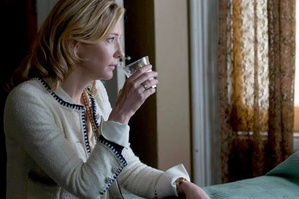 I've been on a Woody Allen kick lately. I'm not sure if it's because of the winter season, which somehow lends itself perfectly to an Allen-directed drama/comedy, but something about burrowing into the covers and watching incredibly flawed characters come to life is both satisfying and wholly entertaining. (I suppose it has something to do with the pleasure of watching characters worse than oneself go through the perils of daily life.) Today I got my hands on Blue Jasmine, the 2013 charmer that's been making itself known this awards season. It's been hailed as one of star's Cate Blanchett's most involved roles, and, I find, with good reason. Blanchett embodies the role of Jasmine (also known as Jeanette) seamlessly, breathing to life a New York socialite turned disgraced widow of a Madoff-esque Wall St. investor (Alec Baldwin). As you would expect of any Wall St. socialite wife, Jasmine has long been cuckolded and is just barely sustaining herself with prescription drugs and alcohol. After Jasmine's husband commits suicide in jail and the last of her funds run out, Jasmine seeks the help of her sister, Ginger (Sally Hawkins in her usual charming and Happy-Go-Lucky way but this time with an unusual, presumably American, accent), and takes up with her in her San Francisco apartment, shared by Ginger's two sons. Fumbling her way through the film by popping pills and downing martinis, Jasmine tries to get back on her feet the only way she knows how: lying and judging her way through each increasingly embarrassing and traumatic interaction as she looks, desperately, for a new man to support her.
What I find undeniably satisfying about Woody Allen's films is his ability to create bitingly accurate representations of modern relationships and love from the most topical of sources. In Blue Jasmine, Jasmine and her husband Hal are the epitome of New York money: think Wolf of Wall St.'s Jordan Belfort (Leonardo DiCaprio) or real-life Ponzi scheme crook Bernie Madoff. In both stories of classic Wall St. corruption, Belfort and Madoff take center-stage in the financial investment drama, but who hasn't wondered what goes on in the minds and lives of their 'embittered' wives? The wives who stood by them for years as they made off with and flushed away the retirement funds of hard-working individuals? The wives who claimed to know nothing about what went on behind-the-scenes, yet enjoyed the wealth their husbands plundered away from the undeserving? This element puts Jasmine in a complicated position for the audience: we don't know whether or not we should or want to sympathize with her. This mystery follows the entire narrative of the story. The structure, which is an excitingly elliptical narrative of flashbacks interlaced with present-day drama, keeps you from siding with any character throughout. It reveals little at a time, culminating in a resolution that, though far from blindsighting, is nevertheless a resolution that raises more questions than it answers, however, provides an aspect to the story that further complicates the audience's connection with Jasmine.
Also worthy of note is Sally Hawkins, who plays Jasmine's adopted sister Ginger. The two women share a complicated dynamic in which Jasmine is constantly advising, to the point of nagging, Ginger to find a man who isn't a loser--a worthy man who will show that Ginger has self-respect. Ironically, Jasmine herself is the sister who needs to learn about self-respect. Compared to Ginger, who's enjoying her own apartment and thriving in her love life, Jasmine is broke, homeless, and still recovering after a nervous breakdown. It's a telling portrait of our contemporary mindset of striving for the best--an end goal--and completely missing out on the importance of what's in front of us. In her continual struggle to find material items to self-validate: the house, the husband with a presence in the public eye, the first-class flights, the high-status career, Jasmine has lost those most important to her, resigning herself to the one person she left out the most when she was at the top: her sister.
Though the ending feels rushed and leaves much to be desired, it is a fittingly open-ended resolution for a woman who is in-transition. While we may never know what happens to Jasmine, the film delivers its own sense of justice by closing with the message that those who screw up get what's coming to them. It's a dark and cruel stance, but honestly, who's going to argue with it?
Overall: 78%
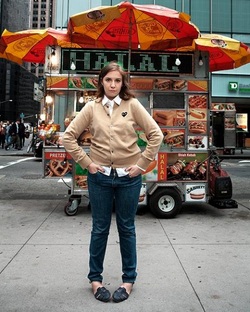 When this news story first popped up on my feed I chalked it up to another annoying commentary by a fan/hater, or, "frieneviewer", who had nothing nice to say about Girls--which I should preface with saying that I love--yet watched the show long enough to tally up the 'shocking' amount of nude scenes. However, several days after the fact, when I was sent the link by a friend, it turned out that the commenter was actually a journalist, that journalist being Tim Molloy, TV editor of The Wrap. He, now famously, had the gall to ask Lena Dunham, quote, (and I quote),
“I don’t get the purpose of all the nudity on the show. By you particularly. I feel like I’m walking into a trap where you say no one complains about the nudity on ‘Game of Thrones,’ but I get why they’re doing it. They’re doing it to be salacious. To titillate people. And your character is often naked at random times for no reason.”
Now, when I initially read that, I dismissed it entirely, believing it to be another sorry excuse for a reason not to watch Girls and its portrayal of "spoiled, twenty-something women". But for some reason, this news story continues to plague the blogosphere, with women (and men) voicing their disdain (and agreement). Personally, yeah, I do find the question a little repulsive, specifically in the way Molloy decided to phrase it. He emphatically states in his article,
“I’m not un-proud of myself in any way because everyone I know has wondered the same thing. I don’t understand as a writer, what the reason for it is. I’m not against it.”
Yes, but you also realize, as a writer, the influence of tone and connotation? When Molloy asked, "I don’t get the purpose of all the nudity on the show. By you particularly", he specifically targeted Dunham in his accusation. It's not a secret that Dunham has been repeatedly attacked for her liberal portrayal of (her own) nudity on her show. And it's not a secret that most of those attacks come from those offended by the way her body looks. It should therefore not be a secret to Molloy, a popular online publication's TV editor, to read up on popular culture and mainstream opinion, especially on a show that is as polarizing and heavily debated as Girls. As a viewer and a fan, I "get" what Dunham is trying to do as a writer, producer, performer, and director. Unlike most other creatives in the entertainment industry, Dunham's ability to take full force of her show, effectively acting as star and showrunner, has put her in a unique position to both effectively tell her story but also make a resounding statement on the status of young adult women in contemporary media.
If you've never heard of it, the "male gaze" is a well-documented aspect of film/television criticism and feminist theory. The concept, introduced by theorist Laura Mulvey in her 1975 essay, "Visual Pleasure and Narrative Cinema", stated that women were objectified in film because heterosexual men were in control of the camera. Classic Hollywood films and TV played to the models of voyeurism and scopophilia (a form of sexual pleasure derived from looking at objects), largely through the way the female body was portrayed on-screen as a way of (in the words of Molloy) "titillating" audiences. As women increasingly saturate the film and television market, both as audiences and creators, the male gaze has been questioned and (perhaps optimistically) resisted, at least insofar as Girls is concerned. Though television and film is still largely oversaturated with female performers who are undeniably attractive and genetically perfect on a physical level (i.e. Michael Bay's parade of models in Transformers, the intentionally excessive use of scantily clad and nude women in Martin Scorsese's The Wolf of Wall Street, and aptly titled Pretty Little Liars or The Vampire Diaries), mainstream media has also moved toward embracing the idea of a more normally-proportioned, intrinsically-beautiful woman (think Jennifer Lawrence and Mindy Kaling). In my opinion, this is where Girls finds its forte and earns its passion from female viewers.
The girls of Girls are (I'm told) incredibly hard to like. Neither of them are model-beautiful or remotely likable in personality. They are selfish, rash, irresponsible, and inconsequential to others' feelings. But honestly, this is why I love them. Unlike the Manic Pixie Dream Girl trope, a character of male fantasy, the Girls girls are just like real girls: they make mistakes, they are rude, they care *mostly* about only themselves, and they mooch off of their families and friends. They aren't unattainable, they aren't/don't feel the need to be concerned about their physical appearance, and they're torn by the problematic outlook of the future of their lives--which seem both infinite and fleeting; their lives and their problems really aren't that different from an actual twenty-something's. A consequence of this, is yeah, "real people are naked sometimes". My opinion, which I understand will come off as completely pretentious, is that Dunham is an auteur and has a vision for what she wants Girls to be. While the other stars of Girls may not be comfortable with nude portrayal, Dunham, as the showrunner, is both confident in herself, and her show, to put herself in that incredibly intimate and revealing position. To me, Girls is as realistic as they come, and that's why I tune in every week (and will be once Season 3 premieres). Nude or not, it's the artist's vision that is portrayed on-screen, and as the director, actor, writer, and producer, I do feel that Dunham has the ability (and the responsibility) to create a cinematic world that effectively tells her story as a twenty-something post-grad trying to make it as a writer. As one myself, I can confirm that much of my day is also spent reclining naked in compromising positions.
|

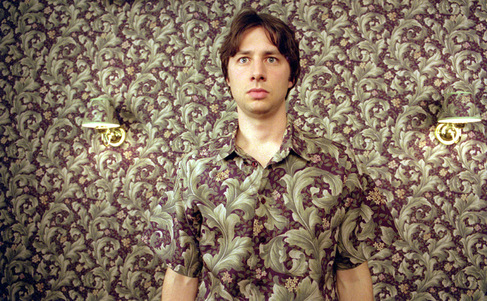

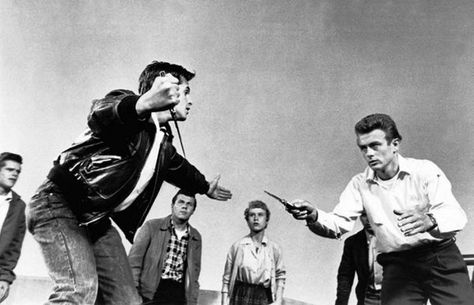


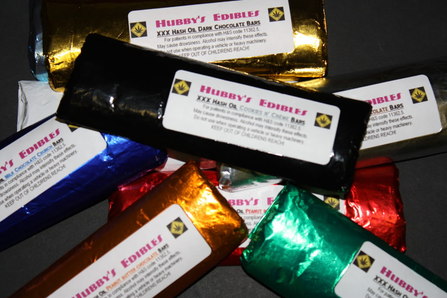
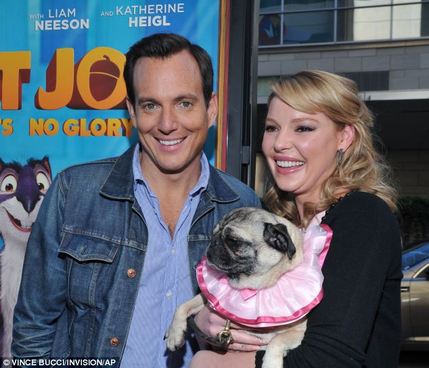
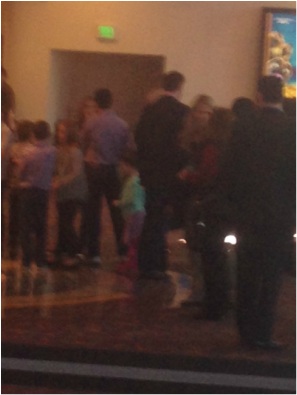
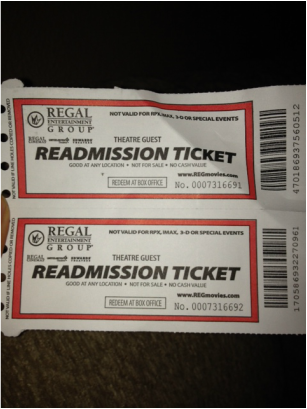

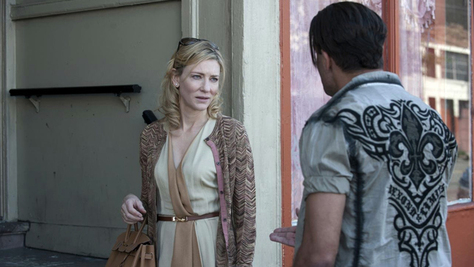
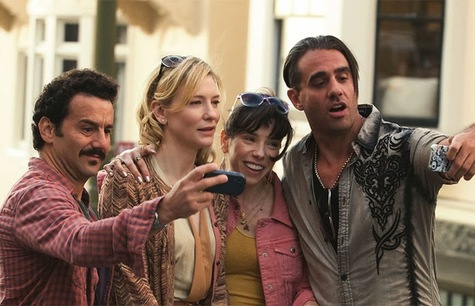

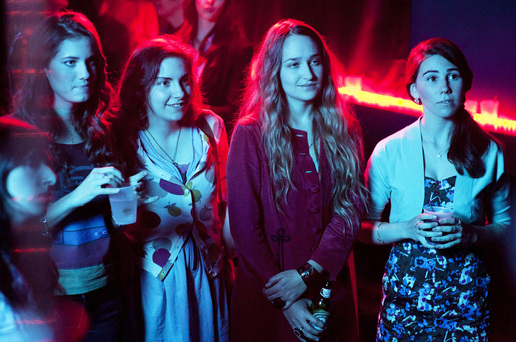
 RSS Feed
RSS Feed